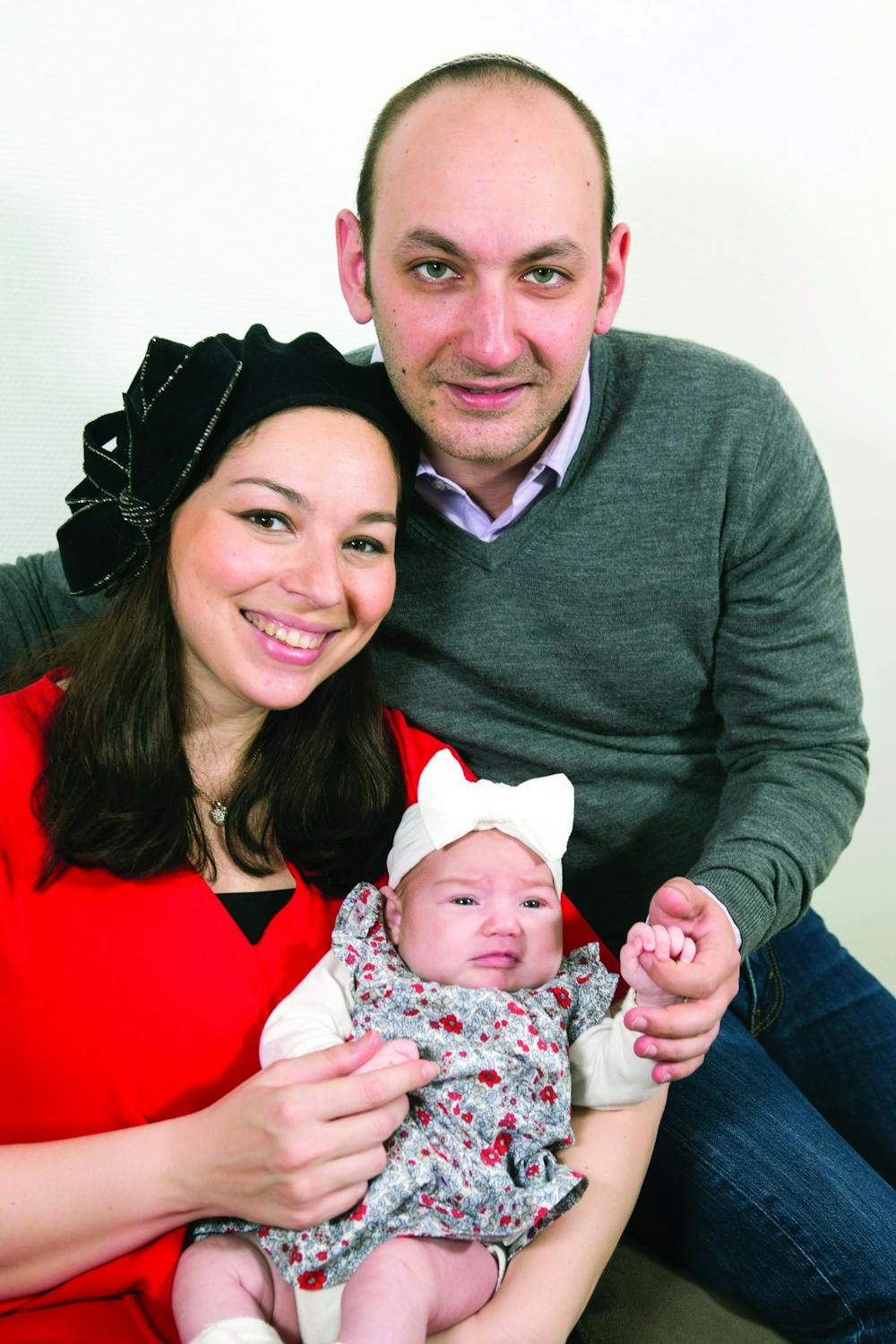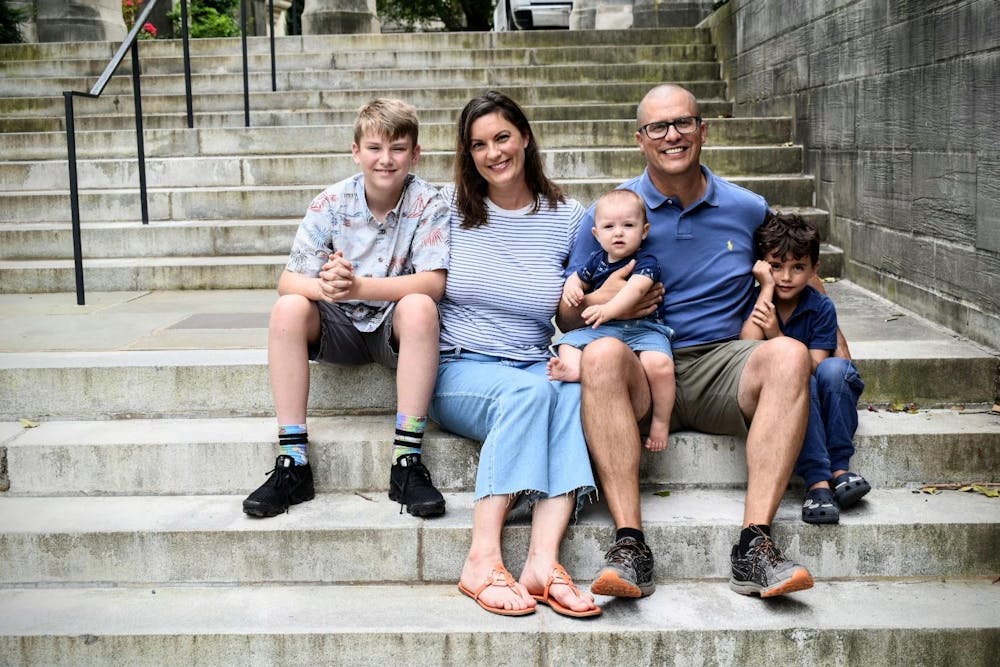In an email to graduate students on Monday, Feb. 10, Dean of the Graduate School Sarah-Jane Leslie GS ’07 announced an increase in the award amount graduate students with children will be able to receive through the Graduate Child Assistance Program (GCAP) for the 2020–21 academic year.
Several students impacted by the policy change told The Daily Princetonian, however, that they found it inadequate in addressing their grievances.
The increase in aid, which will go into effect in August, bumps the maximum award amount from $5,000 per year to $6,000, with a maximum of $12,000 per family in the case of two children.
The program also adjusts eligibility such that graduate students with annual household incomes of up to $80,000 (up from $60,000) are eligible for the full award. Thus, households of two full-time graduate students would qualify, since graduate student stipends average at $30,000 per year.
“It’s important to note that with this change, graduate students with children will be eligible to receive award amounts through GCAP that are larger than the child-care awards faculty or staff at the University may receive,” wrote Deputy University Spokesperson Michael Hotchkiss in an email statement to the ‘Prince.’
“In addition, these enhancements place Princeton as a leader among its peers in support available to graduate students with children,” he added.
In response to the change, Alex Merchant, the treasurer of Tigers with Cubs, a campus group that organizes on behalf of graduate students with children, wrote in an email to the ‘Prince’ that the “Graduate School’s increase to GCAP support recognizes the needs of graduate student parents.”
“Childcare costs in New Jersey are some of the highest in the country. More than a quarter of our survey respondents reported taking on over $10,000 in childcare-related debt in the last year,” he added. “This new GCAP funding will better help graduate student parents excel in their research and scholarship while supporting their families.”
According to Leslie’s email, the financial enhancement to GCAP was, in part, based on “extensive data collection and surveying” that Tigers with Cubs had conducted.
The survey data, obtained by the ‘Prince,’ showed that it included 19 respondents, 75 percent of whom reported taking on debt in the past 12 months due to childcare costs.
Despite this change, the numbers still don’t add up for many parents.
Alex Hazbun, a second-year Ph.D. candidate in the molecular biology department, explained that he was required to provide “proof of funding” for the amounts the University estimated would account for his wife and child’s transportation, food, accommodations, and other expenses.

As an international student, Hazbun had to demonstrate funds totaling $25,700 — none of which could come from his stipend — in order to obtain a visa to bring his wife and child to Princeton. Hazbun needed an estimated $13,600 for his spouse and $12,100 for his child, excluding childcare. (On his visa, Hazbun’s spouse is considered a dependent.)
According to Hazbun, the GCAP award of $6,000, though $1,000 higher than before, is “non-negligible” but nonetheless insufficient.
“We took the decision to come to the University [for me] to study,” said Hazbun. “We also took the decision to have a family.”
“That doesn’t mean the University has to be our own private charity, that’s not what I’m saying,” he continued. “What I’m saying is there is a problem. And as a father, husband, and graduate student, I don’t know how to solve it.”

Alex Hazbun and family
Photo Courtesy of Alex Hazbun
All parents interviewed by the ‘Prince’ recognized both the privilege of attending the University and the hardships that choice has brought.
“When I think about GCAP, I think, ‘Gosh, am I looking a gift horse in the mouth?’ All of this is an extreme privilege,” said Kristin Isaacs, the wife of Cory Isaacs, a third-year Ph.D. candidate in the Woodrow Wilson School Security Studies program. “I want to be thankful and I am thankful, but it’s just not enough.”
The high cost of childcare is evident in the tuition of the University-affiliated nursery center, University NOW, where daytime care for a toddler costs $2,005 per month, amounting to about $20,000 per academic year.
“And UNow isn’t even the most expensive,” Isaacs noted. “It’s insanely cost prohibitive.”
Isaacs took issue with several limits set by the new policy.
“Why cap the award at two children?” she asked. “It’s like … are you family-friendly or are you not?”
She also found concern with capping the award availability at pre-school-aged children.
According to Hotchkiss, GCAP-eligible parties include two-parent households with children 6 years of age or younger, or one-parent households with children up to 12 years of age.
For Isaacs’ family, this age limit creates a problem, since her husband is legally obligated to pay child support for two children from a previous marriage until they graduate high school.
The policy also impacts undergraduate students with children.
Although funding for those students is not drawn directly from GCAP, they do receive amounts equivalent to those allocated via GCAP and thus functionally benefit under the program, according to Thomas Johnson ’22, who said he clarified the source of his award’s funding with an administrator in the Office of Financial Aid.
For one undergraduate with two school-aged children, granted anonymity by the ‘Prince’ since he is currently negotiating with the University, GCAP under its current age-limit guidelines will not apply.
Currently, there are three undergraduates with children enrolled at the University. The three students have access to graduate student accommodations, such as apartments in Lakeside and Lawrenceville, while receiving financial aid via the undergraduate system.
The anonymous student explained that his housing costs are significantly greater than those of an average student. When he attempted to opt for a two-bedroom, he was told it was not an option. Now, his four-person family is obligated to occupy a three-bedroom apartment.
“I get the same financial aid as everybody else, which I understand is fair,” he said. “But at the same time, I’m paying 2.5 times [the average student] for housing.”
“I don’t like asking for essentially charity, but at the same time, it is so incredibly difficult,” he continued. “The future of my studies here is in question.”
The lack of access to affordable childcare, he said, also impacts his ability to take advantage of opportunities on campus and devote adequate time to academic work.
“I understand there are sacrifices that are made as a parent,” he said, but added that he is not willing to become an “absentee father.”
Another issue students raised is the fact that the current arrangement pushes spouses on campus to stay home from work.
“It’s a nasty loophole,” said Hazbun. “You’re going to work to pay for childcare so that you can go to work.”
The anonymous student’s wife has opted to work part-time. But when one of her children falls ill, she said it is more financially expedient to stay home from work and miss hourly wages, rather than hire a sitter.
Isaacs said she is not working currently, in part because “childcare costs are so ridiculous.” She added, though, that for the present, she also wants to be home with her child.
Hazbun sees these challenges as particularly upsetting given that, “[t]here’s no one who’s more committed to having a successful education than someone who has a family.”

Hazbun and family at Firestone Library.
Photo Courtesy of Alex Hazbun
The students also understood their situation as fundamentally an issue of equity and access.
“If the University wants to continue to accept veteran, older students” and be inclusive, said the anonymous student, then it must create a system for them.
Various students suggested policies the University might consider to mitigate such financial and logistical difficulties.
“The solution isn’t fixing GCAP, it’s fixing financial aid,” said Tyler Eddy ’21, who has two pre-school-aged children on campus, and said that on a personal level, GCAP has been working well for him.
Isaacs suggested a subsidy, perhaps at a 50 percent level, for University-affiliated childcare. She also said that increasing the aid package to $10,000 per year (per child) would, in her mind, be “generous but fair.”
One root of the problem, Johnson noted, is the fact that living in Princeton, for many families, removes young parents from family and friend support systems to which struggling young parents at other universities may turn.
When asked in what ways, if any, the University plans to further expand assistance to students with children, Hotchkiss wrote that the University “has long been a leader in offering family-focused initiatives to graduate student parents. As Dean Leslie has said, her goal is to continue to foster an environment where all graduate students can thrive, including graduate students with children.”
“The recently announced enhancements follow on the heels of previous changes we have made to the GCAP program to allow more graduate students to be covered and allow the financial awards to offset more types of costs associated with raising children,” he continued.
Additionally, Hotchkiss wrote, “These previous enhancements mean that GCAP financial benefits are available to eligible graduate students regardless of whether a spouse or partner is working in order to offset costs associated with housing and dependent healthcare, as well as childcare costs.”
As an example, Hotchkiss cited the Graduate School’s recently enhanced Childbirth and Adoption Accommodation Policy, which modified the Student Health Plan to fully cover expenses associated with childbirth.
According to Hazbun, however, the challenges surrounding childcare will only expand, especially if the number of graduate students with children increases.
“The University has everything to win in taking care of these issues early on,” he said.





